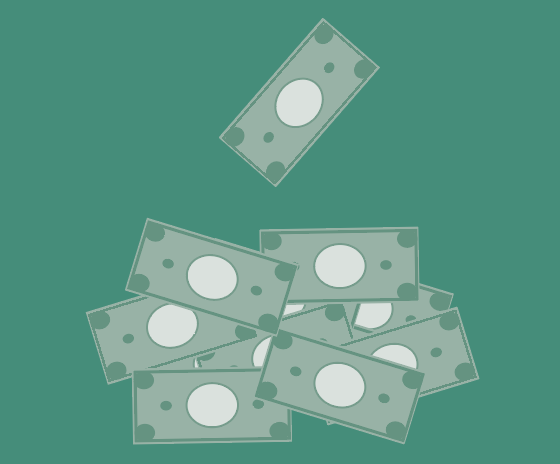Does money buy happiness? The ongoing debate has been researched for decades with no definite answer. “Forbes” magazine says money alone does not generate happiness, but it is a resource that can enhance happiness if used correctly.
However, out of 104 Blue Valley students surveyed, 64% believe that yes, money does buy happiness. With the access much of our student body has to disposable money, it’s surprising the percentage is not higher. Or is it?
In 2010, Princeton students Daniel Kanheman and Angus Deaton conducted a study deducing income does not improve happiness once a salary of $75,000 a year is reached.
After basic needs are met, the way people spend their free time greatly affects overall happiness. Buying stuff rather than prioritizing time with family and friends can make you feel regretful, but you’ll keep doing it anyway.
Materialism is a never-ending cycle of purchasing things presumed to bring happiness that quickly end up in the garbage. We’ve all fallen into the trap of getting rid of one trend for the next.
“Maybe if I just purchase this one $50 conditioner for silky hair or if I get a new phone I’ll be happy.” And the day after your birthday you are already using that phone to shop for more shoes. Items institute delight, but only for a time.
Financial stability can certainly contribute to happiness. It would be privileged to say otherwise. Money can be considered to buy happiness because according to the National Institute of Health, lack thereof causes strain on physical health, mental health and relationships. However, overconsumption culture leads to dissatisfaction in the things you already have.
In contrast, healthy relationships are long lasting and cause true contentment for a lifetime. People need to focus on their loved ones instead of the fluctuating numbers in their bank accounts.
No amount of money can replace the joy of spending time with friends and family. In the long run, it’s more fulfilling to have lasting friendships rather than an overflowing walk-in closet.




